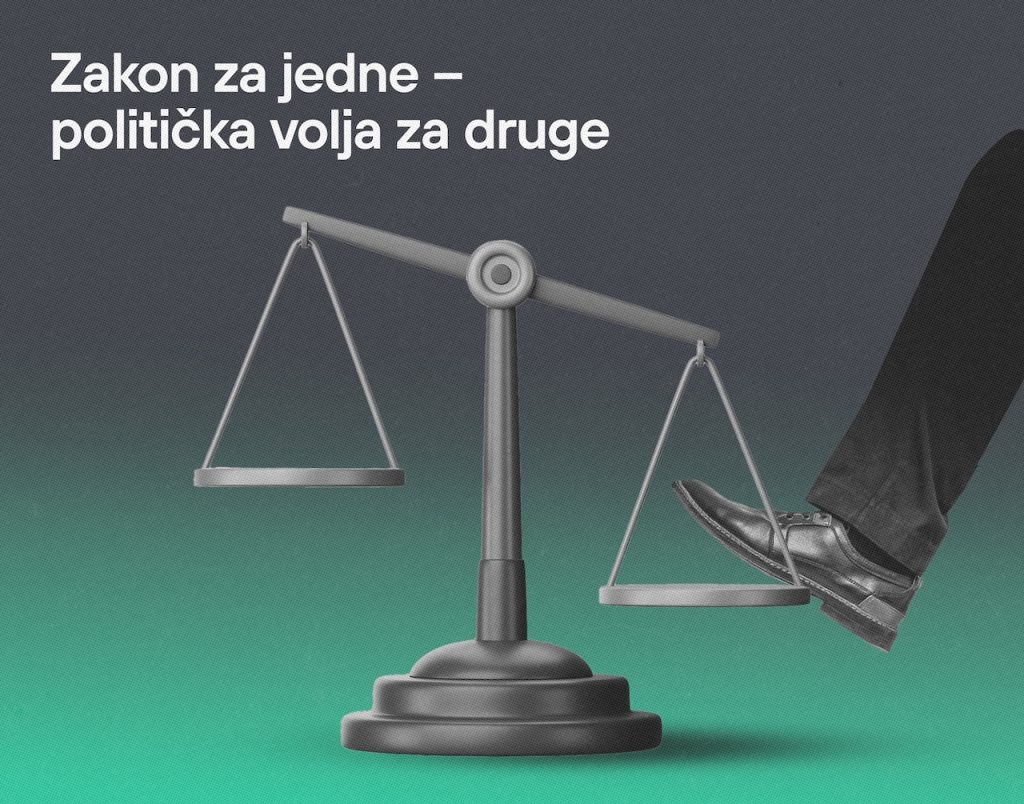Non-governmental organizations supporting the candidacy of Duško Vuković for the member of the Council of the Agency for Audiovisual Media Services assert that yesterday’s decision by the Administrative Committee of the Parliament of Montenegro is politically motivated and legally unfounded, but also a clear indication of the ruling majority’s intent to politically capture the media sector, even at the expense of jeopardizing Montenegro’s European path.
The Administrative Committee, accepting unlawful reasons from the working group responsible for verifying the validity of the documentation submitted by the authorized proposers, comprising ruling majority MPs Duško Stijepović, Vasilije Čarapić, and Bogdan Božović, rejected the proposal to appoint indisputable candidates from the Montenegrin Academy of Sciences and Arts (CANU) and NGOs in the media field. The excuse that it could not be determined whether the governing bodies of the proposers made the nomination decision is absurd, as all acts were duly signed by authorized persons within those entities.
Furthermore, the nomination submission form does not include a section for specifying the governing body that made the decision, it only requires basic information: the name of the NGO, the candidate’s name, their biography and work experience, and the signature of the authorized person. Moreover, neither the Law on Audiovisual Media Services nor the Public Call require the submission of specific decisions from the assembly or other governing bodies of NGOs as part of the required documentation. The statutes of all proposing NGOs clearly define that authorized persons, including directors, are responsible for signing acts within the scope of the NGO’s daily operations. The Administrative Committee is obligated to specify exactly what is missing in each individual act if it is grounded in law, which was not done. Therefore, the documentation was complete and in accordance with the rules prescribed by the Administrative Committee itself.
The selfish political motivation of the ruling majority in the Committee is further confirmed by the fact that the same procedure, with an identical form, was conducted during the appointment of members of the Council of the Gradska RTV Podgorica. Nothing was objectionable then to MP and councilor Vasilije Čarapić, who is now an actor in this obstruction.
The essence is clear – candidates with integrity, proposed by relevant civil society organizations and who meet the legally prescribed conditions, must be eliminated from the process due to political unsuitability, even if it involves violating legal norms.
This political performance by the Administrative Committee is a continuation of the legal violence initiated by the President of the Parliament, Andrija Mandić, when he annulled the previous Public Call for appointing members of the Agency’s Council without justification. All of this should be linked with the announcements by the parliamentary majority about amendments to media laws, which, under the pretext of “improvement,” aim to “legalize” party control over RTCG and the Agency for AVM Services.
We recall that the adoption of the Law on Audiovisual Media Services was one of the conditions for obtaining a positive IBAR, as well as for provisional closure Chapter 10 – Information Society and Media. The second closing benchmark in Chapter 10 relates to the functional and independent operation of the regulatory body for electronic media, i.e., the Agency for AVM Services. The obstructions by the ruling majority to appoint credible representatives of civil society to the Agency’s Council pose a serious and conscious risk of reopening this chapter, as this calls into question, at the very least, the functionality of the Agency.
The goal is obvious – to narrow the space for the operation of independent regulatory bodies and to undermine the role of civil society in the process of democratizing the media system. Therefore, we expect the Government of Montenegro, and especially the Ministry of Culture and Media, the Ministry of European Affairs, and the Ministry of Regional Investment Development and Cooperation with NGOs, to clearly position themselves on this issue. We will also communicate this matter with relevant international actors.
Goran Đurović, Media Center
Olivera Nikolić, Montenegrin Media Institute (MMI)
Daliborka Uljarević, Centre for Civic Education (CCE)
Milka Tadić Mijović, Center for Investigative Journalism (CIN-CG)
Mila Radulović, Association of Professional Journalists of Montenegro
Zdravko Janjušević, Bijelo Polje Democratic Center
Željko Đukić, NGO Multimedia Montenegro
Nataša Nelević, NOVA – Center for Feminist Culture
Azra Hrapović, NGO Đakomo Adriatic
Boris Nedović, NGO Center North
Radomir Petrić, NGO Sua Sponta Bar

